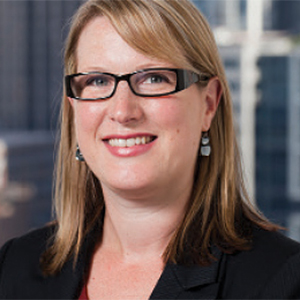The new professional standards regime for financial advisers should be a positive and strong step forward for the financial planning community and its clients, with the objective to deliver a robust framework that is equitable, sustainable, recognises the breadth of the sector and, importantly, reflects the expectations of the community.
Yet, with its first draft guidance for existing financial advisers in December 2017, the Financial Adviser Standards and Education Authority (FASEA) lost its opportunity to positively engage the sector and bring it on this important journey into a new education and ethical framework. Rather, its initial announcement created a level of anxiety and confusion that has set the tone for most of the consultation since.
In fact, many fear, based on the FASEA proposals to date, that we will see highly skilled and experienced practitioners leave the sector. Anecdotally we have heard in one successful practice alone four of the eight principals are currently transitioning away from the provision of advice into other roles. Should this eventuate, it would have significant and far-reaching consequences, from seeing a lost opportunity to mentor the next generation of financial advisers during their professional year of experience through to impacting on the accessibility of advice for the broader community through less supply and likely higher costs.
Importantly, the reform of education and professional standards for financial advisers had strong support from across the sector. There was a common view that lifting the minimum education standard that has been in place for nearly two decades and introducing a statutory code of ethics would help drive the provision of consistent, quality advice in the best interests of the client.

Given the many ongoing inquiries into the sector over the past decade, the new regime was also regarded as vital to rebuild community confidence
Keddie Waller
Given the many ongoing inquiries into the sector over the past decade, the new regime was also regarded as vital to rebuild community confidence and the trust needed to move the sector from being seen largely as an industry towards being recognised as a profession.
A key part of the framework was a standards body to set the details of the new framework rather than trying to define all the relevant details within the legislation.
The expectation was the industry would be responsible for the establishment of this body with a level of legislative oversight. However, given the issues around poor management of perceived and real conflicts of interest, there was strong concern this model had the potential to undermine the success of the new reforms. Given the findings of the banking royal commission so far, an independent standards body declared by the government has proven to be the right decision.
A key advantage of establishing this body was that it would provide a much-needed level of flexibility. This was considered essential given the breadth of the sector, the different advice and licensing models, and the varied education pathways existing financial advisers have followed to move into the sector.
The need for flexibility is reflected in the legislation’s explanatory memorandum, which states, for example, that the transition provisions for existing financial advisers are designed to allow flexibility, ensuring they only need to undertake adequate study to bring their qualifications in line with the new standard.
It is therefore disappointing and somewhat concerning the proposals FASEA sought public comment on have failed to recognise these factors, including that not every existing financial adviser (or new for that matter) will provide holistic financial planning advice.
In fact, many existing financial advisers provide scoped advice, such as superannuation, SMSFs, stockbroking or risk advice. Importantly, scoped advice should not be confused with specialisations. Rather, the scoped nature may reflect advice needs of their clients, complement other advice and services provided by the individual, or simply reflect a desire to only provide limited advice and services.
Of further concern is that the new regime will commence 1 January 2019, yet at the time of writing, with less than three months to go, there are no published education standards or a finalised code of ethics. Given this, how can education providers, Australian financial services licensees or professional associations be ready to support new and existing financial advisers to transition into the regime from 1 January 2019?
There is a level of confusion and concern in the sector, so it was unsurprising FASEA announced in September that several education providers were incorrectly advertising they offered FASEA-approved courses and programs.
Everyone who supported these reforms wants them to succeed and not become a missed opportunity for the financial planning community and, in turn, its clients.


